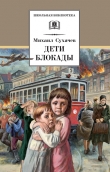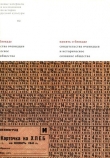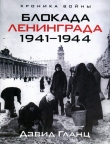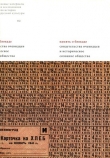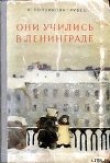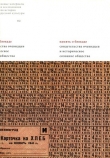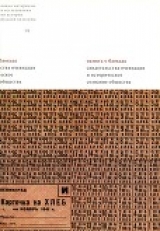
Текст книги "Память о блокаде"
Автор книги: авторов Коллектив
Жанры:
История
,сообщить о нарушении
Текущая страница: 31 (всего у книги 31 страниц)
Dreyfus 1982 / Dreyfus H. L. Michel Foucault: Beyond Structuralism and Hermeneutics. Chicago, 1982.
Durch die innere Befestigungslinie 1941 / Durch die innere Befestigungslinie von Leningrad. 1–12. September 1941 // Militärwissenschaftliche Rundschau / Hrsg. von Generalstab des Heeres, 6. Ig. Berlin, 1941. S. 353–358.
Fainsod 1958 / Fainsod M. Smolensk under Soviet Rule. Cambridge, Mass., 1958.
Fall 12 1960 / Fall 12: Das Urteil gegen das Oberkommando der Wehrmacht, gefällt am 28. Oktober 1948 in Nürnberg vom Militärgerichtshof 5 d. Vereinigten Staaten von Amerika Berlin, 1960.
Filtzer 1986 / Filtzer D. Soviet Workers and Stalinist Industrialization: The Formation of Modern Soviet Production Relations, 1928–1941. London, 1986.
Fischer 1982 / Fischer W. Time and Chronic Illness: A Study of Social Constitution of Temporality: Habilitation Thesis. Berkeley, 1982.
Fitzpatrick 1994 / Fitzpatrick S. Stalin’s Peasants: Resistance and Survival in the Russian Village after Collectivization. N. Y.,1994.
Fitzpatrick 1996 / Fitzpatrick S. Supplicants and Citizens: Public Letter-Writing in Soviet Russia in the 1930s // Slavic Review. 1996. Vol. 55. № 1. P. 78–105.
Flick, рукопись / Flick W. Erinnerungen, 1921–1949. Рукопись.
Foucault 1980 / Foucault M. Power-Knowledge: Selected Interviews and other Writings, 1972–1977. N. Y., 1980.
Foucault Reader 1984 / The Foulcault Reader. N. Y., 1984.
Fridrich, Brzezinski 1956 / Fridrich C., Brzezin-ski Z. Totalitarian Dictatorship and Autocracy. Cambridge, 1956.
Frisch 1979 / Frisch M. Oral History and Hard Times // Oral History Review. 1979. Vol. 7. R 70–79.
Getty 1999 / Getty J. A Samokritika Rituals in the Stalinist Central Committee, 1933–1938 // Russian Review. Vol. 58. № 1 (lanuary 1999). P. 49–70.
Glantz 2001 / Glantz D. M. The Siege of Leningrad, 1941–1944: 900 Days of Terror. Osceola, 2001.
Goure 1962 / Goure L. The Siege of Leningrad. Stanford; London, 1962.
Greimas 1966 / Greimas A.-J. Semantique structural: Recherche de methode. Paris, 1966.
Halbwachs 1950 / Halbwachs M. Collective Memory. N. Y., 1950. P. 78–87.
Halbwachs 1992 / Halbwachs M. On Collective Memory. Chicago, 1992.
Halfin 2000 / Halfin I. From Darkness to Light: Class, Consciousness and Salvation in Revolutionary Russia Pittsburgh, 2000.
Halfin, Hellbeck 1996 / Halfin I., Hellbeck J. Rethinking the Stalinist Subject: Stephen Kotkin’s ‘Magnet Mountain’ and the State of Soviet Historical Studies // Jahrbücher für Geshichte Osteuropas, 1996. Bd. 44.
Harvard Project I/7, III/25, IV/30, IV/41 / Harvard University. Davis Center for Russian and Eurasian Studies. Harvard Project on the Soviet social system [conducted by] the Russian Research Center: Harvard University. A schedules. Vol. I. № 7; Vol. III. № 25; Vol. IV. № 30; Vol. IV. № 41.
Haupt 1966 / Haupt W. Heeresgruppe Nord: Der Kampf im Nordabschnitt der Oastfront 1941–1945. Podzun, 1966.
Haupt 1980 / Haupt W. Leningrad: Die 900-Tage-Schlacht, 1941–1944. Podzun, 1980.
Hellbeck 1996 / Hellbeck J. Fashioning the Stalinist Soul // Jahrbücher für Geshichte Osteuropas. 1996. Bd. 44.
Hellbeck 2000 / Hellbeck J. Speaking Out: Language of Affirmation and Dissent in Stalinist Russia// Kritika: Explorations in Russian and Eurasian History. 2000. Vol. 1 № 1. P. 71–96.
Hessler 2000 / Hessler J. The Stalinist Turn towards Consumerism// Stalinism: New Directions / Ed. by Sh. Fitzpatrick. London, 2000.
Heysing 1944 / Heysing G. Nordpfeiler der Ostfront. Berlin, 1944.
Hobsbawm 1978 / Hobsbawm E. Man and Woman in Socialist Iconography// History Workshop: A Journal of Socialist Historians. 1978. № 6. P. 121–138.
Hoffman 1991 / Hoffman D. L. Peasant Metropolis: Social Identities in Moscow, 1929–1941. Ithaca; N. Y.,1991.
Holmes 1997 / Holmes L. E. Part of History: the Oral Record and Moscow’s Model School no. 25,1931–193711 Slavic Review. 1997. Vol. 56. № 2. P. 279–306.
Intimacy and Terror 1995 / Intimacy and Terror: Soviet Diaries of the 1930s. N. Y., 1995.
Kallmeyer, Schütze 1977 / Kallmeyer W., Schütze F. Zur Konstitution von Kommunika-tions Schemata // Gesprächsanalyse / Hrsg. von D. Wegner. Hamburg, 1977.
Kampf um Leningrad 1943 / Kampf um Leningrad, herausgegeben von der 18. Armee im Dezember 1943. Als Manuskript gedruckt in Reval // Bundesarchiv-Militärarchiv Freiburg (BA-MA). RH 20–18 /194.
Kenez 1985 / Kenez P. The Birth of the Propaganda State: Soviet Methods of Mass Mobilisation, 1917–1929. Cambridge, 1985.
Kharkhordin 1999 / Kharkhordin O. Collective and the Individual in Russia Berkeley, 1999.
Kotkin 1995 / Kotkin S. Magnetic Mountain: Stalinism as a Civilization. Berkeley, 1995.
Kotkin 1998 / Kotkin S. Review on «Popular Opinion in Stalin’s Russia: Terror, Propaganda, and Dissent, 1934–1941» 11 Europe-Asia Studies. 1998. Vol. 50. № 4. P. 739–742.
Labov, Waletzky 1997 / Labov W., Waletzky J.
Narrative Analysis: Oral Versions of Personal Experience // Oral Versions of Personal Experience: Three Decades of Narrative Analysis. Special Volume of Journal of Narrative and Life History. 1997. Vol. 7. P. 3–38.
Linde 1993 / Linde Ch. Life stories: The creation of coherence. N. Y.; Oxford, 1993.
Lovell, Ledeneva, Rogachevskii 2000 / Lovell S., Ledeneva A. V., Rogachevskii A. Bribery and Blat in Russia: Negotiating Reciprocity from the Middle Sages to the 1990s. London, 2000.
Malia 1992 / Malia M. From under the Rubble, What? // Problems of Communism. 1992. Vol. 41. № 1 (January-April). P. 89–105.
Molotov Notes 1942 / The Molotov Notes on German Atrocities: Notes sent by V. M. Molotov, People’s Comissar for Foreign Affairs, to all Governments with which the USSR has diplomatic relations. London, 1942.
Moskoff 1990 / Moskoff W. The Bread of Affliction: The Food Supply in the USSR During World War II. Cambridge, 1990.
Niethammer 1995 / Niethammer L. Zeroing in on change // The history of everyday life. Princeton, 1995.
Oevermann 1980 / Oevermann U. Zur Logik der Interpretation von Intewievtexten 11 Intrpretationen einen Bilding-sgaschichte / Hrsg. von Th. Heintze, H. W. Klusemann, H.-G. Soeffner. Bensheim, 1980. S. 15–69.
Oevermann et al. 1979 / Oevermann U., Allert Т., Копай E., Krambeck J. Die Methodologie einer «objektiven Hermeneutik» und ihre allgemeine forschungslogische Bedeutung in den Sozialwis-senchaften // Intepretative Verfahren in den Sozia-und Textwissenschaften / Hrsg von. H.-G. Soeffner. Stuttgart, 1979-S. 352–434.
Oral history 1996 / Oral history: An interdisciplinary anthology / 2d ed. London, 1996.
Osokina 2001 / Osokina E. Our Daily Bread: Socialist Distribution and the Art of Survival on Stalin’s Russia, 1927–1941. N. Y.,2001.
Passerini 1987 / Passerini L. Fascism in Popular Memory. Cambridge: Cambridge University Press; Editions de la Maison des Sciences de l’Homme, 1987.
Pohlman 1962 / Pohlman H. Wolchow: 900 Tage Kampf um Leningrad, 1941–1944. Podzun,1962.
Portelli 1991 / Portelli A. The Death of Luigi Trastulli: Memory and the Event // Portelli A The Death of Luigi Trastulli and Other Stories: Form and Meaning in Oral History. Albany, 1991. P. 1–26.
Ransel 2000 / Ransel D. L. Village Mothers: Three Generations of Change in Russia and Tataria Bloomington, 2000.
Reau 1938 / Reau L. L’Europe Fran^aise au siecle des Lumieres. Paris, 1938.
Reau 1994 / Reau L. Histoire du vandalisme. Paris, 1994.
Rimmel 1999 / Rimmel L. A. Svodki and Popular Opinion in Stalinist Leningrad // Cahiers du monde russe. 1999. Vol. 40. № 1/2. P. 217–254.
Rosenthal 1989 / Rosenthal G. May 8th, 1945: The Biographical Meaning of a Historical Event // International Journal of Oral History. 1989. № 10 (3). P. 183–192.
Rosenthal 1993 / Rosenthal G. Reconstruction of Life Stories: Principles of Selection in Generating Stories for Narrative Biographical Interviews // Narrative Study of Lives. Sage, 1993. Vol. 1. P. 59–91.
Rosenthal 1995 / Rosenthal G. Erlebte und erza-ehlte Lebensgeschichte: Geshtalt und Struktur biographischer Selbstbeschreibungen. Frankfurt am Main; N. Y.,1995.
Sachs 1943 / Sachs G. Südlich des Ilmensees. Ein Kriegsbericht. Berlin, 1943.
Sacks 1992 / Sacks H. Lectures on conversation. Cambridge, MA, 1992. Vol. I.
Schama 1996 / Schama S. Landscape and Memory. London, 1996.
Schlacht am Wolchow 1942 / Schlacht am Wolchow / Hrsg. von der Propagan-da-Kompanie einer Armee. Riga, 1942.
Schütze 1977 / Schütze F. Die Technik des narrativen Interviews in Interaktionsfeld-studien – dargestellt an einem Projekt zur Erforschung von kommunalen Machtstrukturen. Bielefeld: Fakultät für Soziologie an der Universität Bielefeld, 1977.
Schütze 1983/ Schütze F. Biographieforschung und narratives Interview // Neue Praxis. 1983. Bd. 3. S. 283–293.
Schütze 1992 / Schütze F. Pressure and Guilt: War Experiences of a Young German Soldier and their Biographical Implications // International Sociology. 1992. Vol. 7. № 2/3. P. 187–208.
Siegelbaum 1988 / Siegelbaum L. Stakhanovism and the Politics of Productivity in the USSR, 1935–1941. Cambridge, 1988.
Siegelbaum 2000 / Siegelbaum L. Dear Comrade, You Ask What I Need // Stalinism: New Directions / Ed. by Sh. Fitzpatrick. London: Routledge, 2000.
Siegelbaum, Sokolov 2000 / Siegelbaum L., Sokolov A. Stalinism as a Way of Life: A Narrative in Documents. New Haven, Conn.; London, 2000.
Simmons, Perlina 2002 / Simmons C., Perlina N. Writing the siege of Leningrad: women’s diaries, memoirs, and documentary prose. Pittsburgh: Pittsburgh University Press, 2002.
Slim et al. 1998 / Slim H., Thompson P., Bennett O., Cross N. Ways of listening // The Oral History Reader / Ed. by R. Perks, A Thomson. London; N. Y., 1998. P. 114–125.
Stachow 1997/ Stachow H. G. Fiasko an der Newa: Die Belagerung von Leningrad, 1941–1944. Ein Augenzeugenbericht. München, 1997.
Stachow 2001 / Stachow H. G. Tragödie an der Newa. Der Kampf um Leningrad 1941–1944. Ein Augenzeugenbericht. Mit 85 Abbildungen, Karten and Dokumenten. München, 2001.
Südlich des Ladogasees 1943 / Südlich des Ladogasees. Winter 1943 / Hrsg. von der Armee vor Leningrad. Riga, 1943.
Suny 1997 / Suny R. G. Stalin and his Stalinism: power and authority in the Soviet Union, 1930–1953 // Stalinism and Nazism: Dictatorships in Comparison. Cambridge, 1997. P. 26–52.
Tagebüch 1996 / Tagebüch aus Moskau, 1931–1939 / Hrsg. von J. Hellbeck. Münich, 1996.
Thompson 1988 / Thompson P. The Voise of the Past / 2d ed. Oxford, 1988.
Thurston 1986 / Thurston R. W. Fear and Belief in the USSR’s «Great Terror»: Response to Arrest, 1935–1939 // Slavic Review. 1986. Vol. 45. № 2. P. 213–234.
Thurston 1991 / Thurston R. Social Dimensions of Stalin’s Rule: Humor and Terror in the USSR, 1935–194111 Journal of Social History. 1991. Vol. 24. № 3.
Thurston 1996 / Thurston R. W. Life and Terror in Stalin’s Russia, 1934–1941. New Haven, 1996.
Verbrechen der Wehrmacht 2002 / Verbrechen der Wehrmacht: Dimensionen des Vernichtungskrieges 1941–1944 / Hamburg: Hamburger Institut für Sozialforschung, 2002.
Viola 2000 / Viola L. Popular Resistance in the Stalinist 1930s // Kritika 2000. Vol. 1. № 1.
Völlering 1989 / Völlering G. Meine verlorenen Jahre. Errinnerungen – nicht nur an Russland / 3. Auflage. Messingen, 1989.
Werth 1964 / Werth A. Russia at War, 1941–1945. London: Barrie and Rockliff, 1964.
290. Infanterie-Division 1960 / 290. Infanterie-Division, 1940–1945. Delmenhorst: Selbstverlag Kameraden-Hilfswerk 290. Infanterie-Division, 1960.
Summary
The Memory of the Blockade: Original Evidence and the Historical Consciousness of Society presents the results of the research projects realized by the Center for Oral History at the European University in St. Petersburg: The Blockade in the Fates and Memory of the Citizens of Leningrad and The Leningrad Blockade in the Collective and Individual Memory of the Inhabitants of the City (2001–2003). They analyses the image of the Leningrad blockade in the public conscience of the inhabitants of this city after the Second World War. Examination of the collective and individual memory of the blockade – the history of how its image was constructed in the official discourse of the post-War years and the personal recollections of the eyewitnesses – is accompanied by the publication of the interviews with those who survived in the blockade and the younger generation of the Leningrad citizens, whose parents or relatives abode the blockade.



